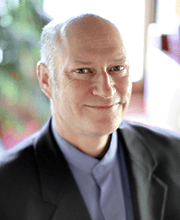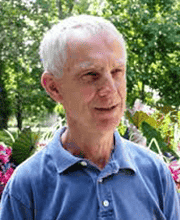The Society of Experimental Psychologists
The Society of Experimentalists was founded by Edward Bradford Titchener in 1904. Titchener's design for his "Experimentalists" was that it be an ongoing workshop, with "members visiting labs, studying apparatus, and hearing and commenting on reports of ongoing research."


About Us

News and Events

Awards
History of SEP
The first meeting of the Society of Experimental Psychologists - then called "The Experimental Psychologists", or "The Experimentalists" for short - was held at Cornell University in Ithaca, New York, on April 4 - 5, 1904. The meetings then, and for many years thereafter, were presided over by Edward Bradford Titchener. Researchers from universities including Cornell, Yale, Clark, Michigan, and Princeton attended these early meetings, with Chicago and Iowa soon joining. Research papers were read and discussed by established researchers and tyros alike.
As the number of practicing experimental psychologists grew nationally, along grew discussions concerning the limits that should be placed on membership in the group: Should it be kept small to ensure a manageable series of conferences; or should it be open to all interested, practicing experimental psychologists? The decision was made to keep it small-to follow the so-called Academy model-and eventually Fellows of the society were instrumental in the founding of an alternative organization, called The Psychonomic Society, to serve the needs of broader representation and communication (see Dewsbury & Bolles, 1995 for details). During these early years, the total membership in the Experimentalists ranged around 35 individuals. Learn More
About Us
The Society of Experimentalists was founded by Edward Bradford Titchener in 1904. Titchener's design for his "Experimentalists" was that it be an ongoing workshop, with "members visiting labs, studying apparatus, and hearing and commenting on reports of ongoing research."
The Society has continued to meet annually in the years since, except for the war year 1918 and the COVID pandemic years 2020 and 2021. Upon Titchener's death in 1927 the club was reorganized into The Society of Experimental Psychologists. The Society typically holds meetings in the spring, scheduled and organized by a member, who serves on the Executive Committee of the Society for that year. The meetings are open to all members of the Society, and to students and faculty from the host university as invited by the organizer.
The meetings are plenary and involve papers from various members of the society. The society currently admits at least 6 new members annually from among the leading experimentalists in North America. It has a current membership of 281 individuals, about 5 - 10% of the practicing experimental psychologists. The mission of the society is "To advance psychology by arranging informal conferences on experimental psychology."


Annual Meeting
2026 Meeting – April 17-19, 2026
Princeton University, New Jersey
Congratulations to the 2025 SEP Fellows!
Richard Abrams
Peter Balsam
Jody Culham
Lisa Feigenson
David Gallo
Megan Gunnar
Denise Head
Patricia Kuhl
2025 Early Investigator Award Recipient
Maureen Ritchey
Awards
Warren Medal
The Howard Crosby Warren Medal is given for the most significant advances in Experimental Psychology over the prior five years.
Lifetime Achievement Award
The Norman Anderson Lifetime Achievement Award is given to senior individuals with outstanding records of contribution to experimental psychology.
Early Investigator Award
The Early Investigator Award is given to individuals who early in their careers have already made significant contributions to experimental psychology.
Recent Awardees

Dr. Robert L. Goldstone
Indiana University
Recipient of the 2024
Howard Crosby Warren Medal

Dr. Doug Medin
Northwestern University
Recipient of the 2024
Norman Anderson Lifetime
Achievement Award
Send Us a Message
We'll get right back to you.

